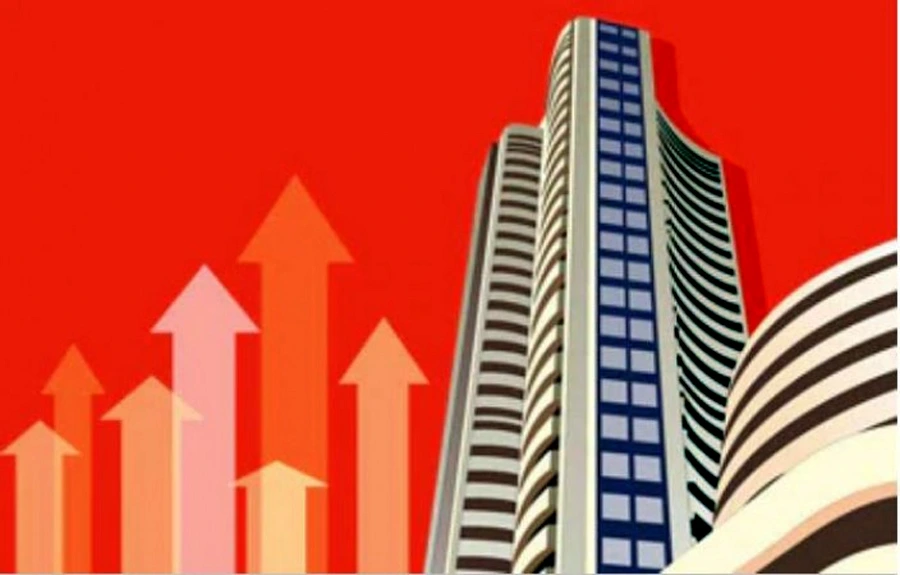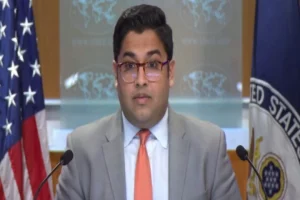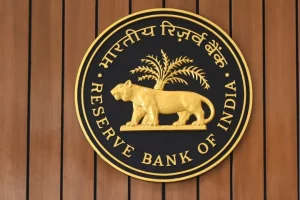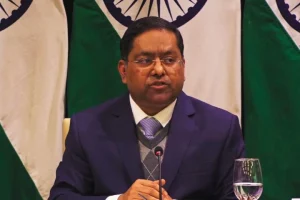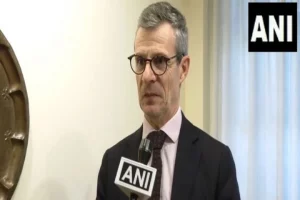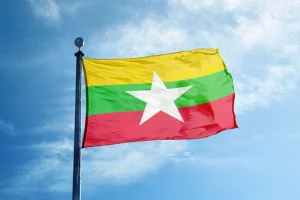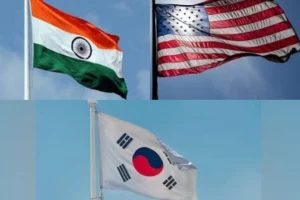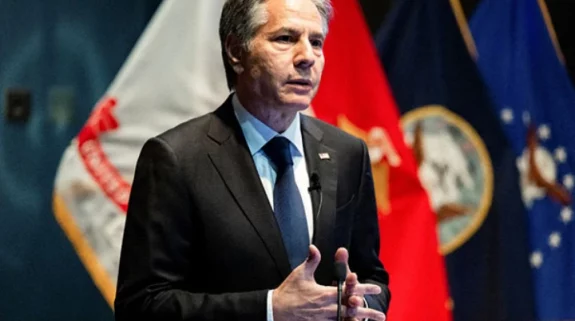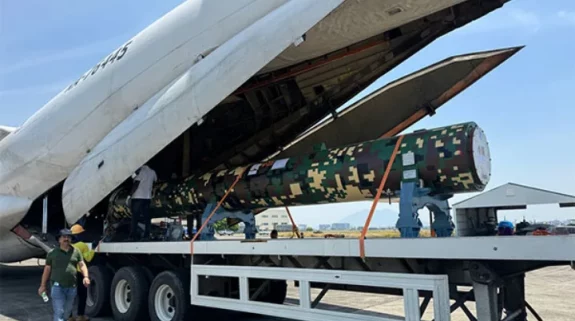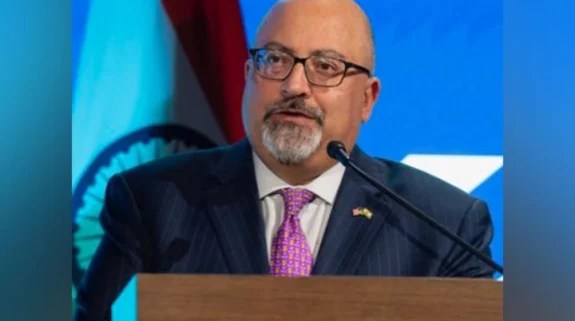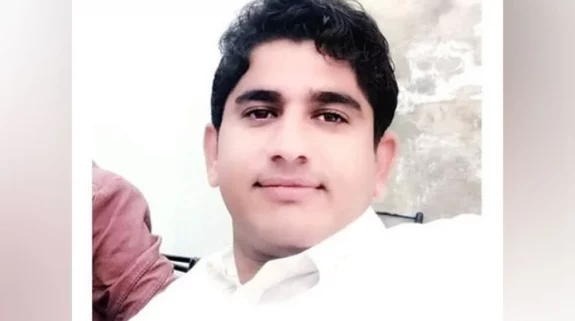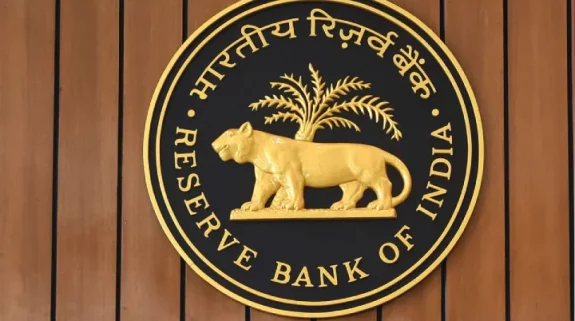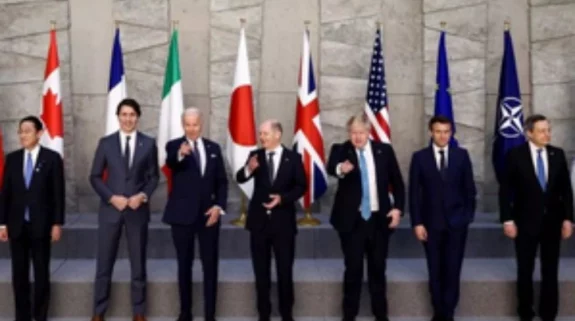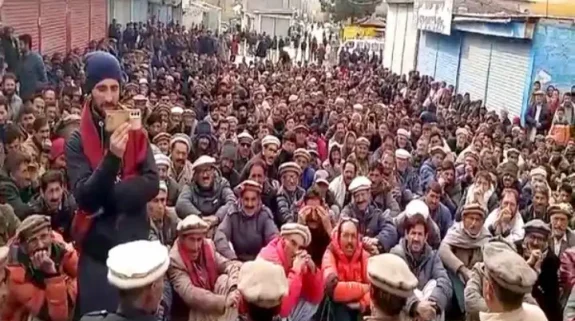The Indian economy will eventually pick up despite inflation and challenges like domestic strife. On the other hand, there is a looming global unrest as public resentment against governments rise over food and fuel inflation.
At Canary Wharf, one of London's premium destinations, India Narrative catches up with Supriya Ravishankar, working as a risk analyst with Sibylline, a strategic advisory firm, that identifies opportunities and forecast risks for the corporate sector.
As the South Asia analyst, Ravishankar is constantly monitoring South Asian countries to provide analytical information to Sibylline’s clients which could include organisations ranging from the hospitality industry to publishing and media, finance and defence as well as international development organisations.
She says that her job as a risk analyst involves constant monitoring of news, cross-verifying information, breaking-down complex events and presenting these to clients. “It is as much a communications job as it is about advisory”, she asserts. An alumna of Cambridge and the London School of Economics, Ravishankar had earlier worked with Centre of Social and Economic Progress (formally Brookings India) and the Washington-based Rise to Peace.

Supriya Ravishankar analyses the business climate for corporations
Excerpts from the interview:
IN: You are studying and analysing South Asia on a daily basis. What is your prediction about India?
Ravishankar: India is a massive economy. Despite its problems with inflation, it is still growing with respect to its role in the region. Separately, its competition with China keeps it on its toes.
I think I see a seminal shift taking place in India’s approach to Free Trade Agreements (FTA). India is planning to ink the same with the UK, the Gulf Cooperation Council (GCC) and the European Union (EU) to name a few, rectifying in a way reputational damage it incurred after leaving the Regional Comprehensive Economic Partnership (RCEP).
India is an export-oriented country, therefore, I see India signing more FTAs so that trade flourishes. It also wants more control on the terms of trade agreements and I think therefore prefers bilateral rather than multilateral pacts.
As for concerns, there was initial concern in the West about India turning inwards through the Atmanirbhar Bharat programme.
Another concern is over the social media regulations, free speech and the fallout over communal polarisation. These issues do worry investors—mainly in the UK, Europe and the US, in terms of the impact it may have on their assets, staff and the general business environment.
Regarding China we feel that India-China tensions will remain protracted but neither side wants an escalation. The India-China rivalry has a political side to it and a business side.
IN: The world is in turmoil because of the Russia-Ukraine conflict and a looming food and energy crisis. What is your forecast about the global situation?
Ravishankar: Economists are predicting that the world is going to slip into a recession soon. What is worrying is that if that happens, it can well be followed by popular unrest which will be unsettling for business operations. We can already see rising dissatisfaction against governments which may result in public protests across the globe.
Countries are likely to become more protectionist and may frame inward-looking policies, particularly in matters of food security. Indeed, in days to come, food security will keep growing as a big concern for governments.
The energy crisis is also a key concern, particularly for businesses, as it has a direct impact on manufacturing and operations. Europe will continue to witness an energy crisis and inflation, but African and Asian developing nations will likely be hit harder in the long term by the food and fuel crisis.
In my opinion however, Climate change will be the number one long-term concern and South Asia will be impacted. Floods, heat waves and the rise in sea levels is already impacting countries like Bangladesh and the Maldives. The added difficulty is that solving the climate crisis requires global cooperation. Also, many countries do not have the resources to tackle climate problems, the business environment in these countries will remain particularly vulnerable.
IN: South Asia is so dominated by India in almost every way, how do you craft your strategies for the region as a whole?
Ravishankar: My major chunk of work comes from studying India and Pakistan. Regional and country-specific events also define my work. For example, reporting on Afghanistan went up after the Taliban takeover as companies wanted to know if it will affect the security situation in neighbouring countries like Pakistan.
Or in Pakistan, the focus shifted to the political situation with the no-confidence motion against then prime minister Imran Khan. In Pakistan we also have been looking at the energy and the food crisis. Possible internet shutdowns, domestic unrest and its impact on basic living conditions, and the Balochistan insurgency. We have also been following various attacks taking place in cities such as Karachi.
Before the Afghanistan, Pakistan and Sri Lanka crisis, the spread of Covid-19 was a big concern for clients. We were analysing the fall out of the travel bans, lock-downs and their impact on the supply chains in South Asia.
Going back further, we monitored domestic unrest in India due to the Citizenship Amendment Act (CAA) and the farmers’ protests particularly in terms of supply chain bottlenecks due to the blocking of highways. People were also keen to know about the fallout of the ban on the Chinese apps and Chinese companies after the Galwan valley clash.
So, I largely do not look at South Asia as a whole but rather countries individually, but I also at times have a regional perspective in my analysis.
IN: Many of these are touchy domestic issues. How do you keep yourself out of a controversy? Where do you draw the line in your analysis?
Ravishankar: Companies want to know how protests and domestic unrest impact the internet, public transport, supply chains. They want to know how big these protests are, how violent they are likely to be and the by-stander issues (how will people who are not part of these protests be affected). That is the focus.
We do not give our personal opinion on human rights and domestic politics.
IN: The Quad is a geo-strategic initiative. Why would the activities of the Quad interest you?
Ravishankar: Any developments related to India-China and India-Pakistan evoke interest.
When the US thinks of balancing China in the Indian Ocean Region (IOR), it thinks of India. The US cannot guarantee complete security in the vast Indo-Pacific by itself as it is simply too vast. So, it needs India to keep tabs on China’s expanding footprint in the IOR. I believe that India will be at the forefront in the Indo-Pacific as it plays into its own security requirements.
Tensions between India and China worry corporations. I would look into whether competition between the two Asian giants will increase and if this will spread from the IOR.
Our clients primarily want to know about the conflict between China and the USA and how this is going to play out in different geographies. They want to know if this can cause bottlenecks to supply chains or trade bans.
IN: You have mentioned the bigger economies in South Asia but what interests’ companies in Afghanistan?
Ravishankar: It is international NGOs that are interested in Afghanistan, not the corporate sector as much. There is interest around subjects such as major terror attacks, the severity of the food security crisis, the human rights situation. NGOs are also interested in women’s rights, governance by the Taliban.
Last year there were concerns that China will try to fill up the space that the US vacated and will extract minerals. But that anxiety turned out to be largely unfounded. We find that China’s diplomatic interest has increased in Afghanistan but nothing concrete seems to have taken place on ground.
IN: What is your assessment of the situation in Sri Lanka?
Ravishankar: I think the world had an inkling about the situation in Sri Lanka but nobody thought that it would become so bad.
Companies began to take interest in Sri Lanka after the Easter Sunday bombings. Much has happened after that including Covid-19 and the economic collapse. Now the whole focus is on the stability of the government and how it will steer itself out of the financial crisis.
The unrest and the energy crisis in the country is of interest to the world. The ground reality can well be far worse than reports that emerge in the media.
More IN Exclusives:
Interview: India should exercise leadership within the Quad of democracies
Indian doctors have made immense contribution to both India and the UK: BAPIO Chairman
Meet Pravin Patel—Overseas Indian who has made it big in the UK






